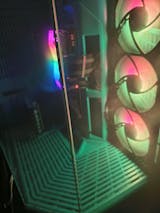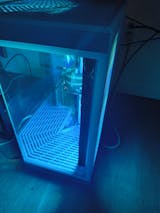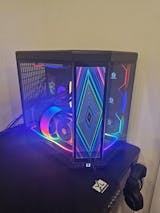Whether you’re building a custom gaming computer for the first time or you’re thinking of making an upgrade, the power supply unit (PSU) you choose will directly affect the way your custom build operates and allocates power. XOTIC PC engineers some of the most highly regarded computing solutions in the industry, and we know just how expensive hardcore gaming can be. We rounded up some of the best tips and directives when it comes to finding power supplies for gaming. Read our guide to learn more about the process of power supply, so you can shop and build your PC with complete confidence.
Beginner’s Guide to Power Supplies for Gaming
Power supply is one of the most essential parts of any gaming build. If the power supply shorts out, it could potentially fry everything attached to it. Your decision to buy will generally boil down to a few factors: overall wattage, efficiency, and modularity. There are also online calculators that you can use to determine how much power you need.
Wattage: Low-performance machines require fewer watts than high-performance machines. You can easily calculate the wattage you need based on the other core components you’ve chosen for your PC: the motherboard, CPU, RAM, video cards, storage, optical drives, PCI cards, fans, keyboard, monitor, and liquid cooling components. CPU speed, core voltage, and utilization play a major role in ultimately projecting your energy consumption and costs. To be safe, we recommend that you add 50 to 100 watts to your calculation. Substantial power supplies will run hot, and hardcore gaming will only make them run hotter. It never hurts to invest in extra fans or a cooling system for your case.
Efficiency: Every power supply comes with a percentage value to determine its efficiency. Higher efficiency units will run cooler and save you money in the long run. Common wattages range from 300W to 500W, but high-end gaming computers require power supply wattages of 600W to 800W or more. Any typical gaming computer or first build will benefit from at least 500W of power. You should not base your decision to invest on the listed wattage requirements of your core components.
Modularity: A modular PSU allows you to attach or detach cables on an as-needed basis. Traditional power supplies feature permanently attached cables, while semi-modular units fall somewhere in between. Modular units have major benefits in terms of cable management. Without one, cable management can become time-consuming and tedious. Unless you’re building in a really tight case, it is usually safe to go with semi- or fully-modular power supply.
Power supply size will also play a vital role in your decision, because the physical dimensions of your PC can be very limiting. You should always double-check the size of your PSU relative to the PSU clearance provided by the case’s technical specifications sheet. As a general rule of thumb, you should leave extra space. Power supplies for gaming might not be the most thrilling part of building a custom PC, but a bad PSU can spell disaster for your entire build. Don’t settle in terms of spare wattage or system longevity. If you have any questions about this guide or would like more information about our custom services, please contact us today for further assistance.
Your cart is currently empty.
Start Shopping












